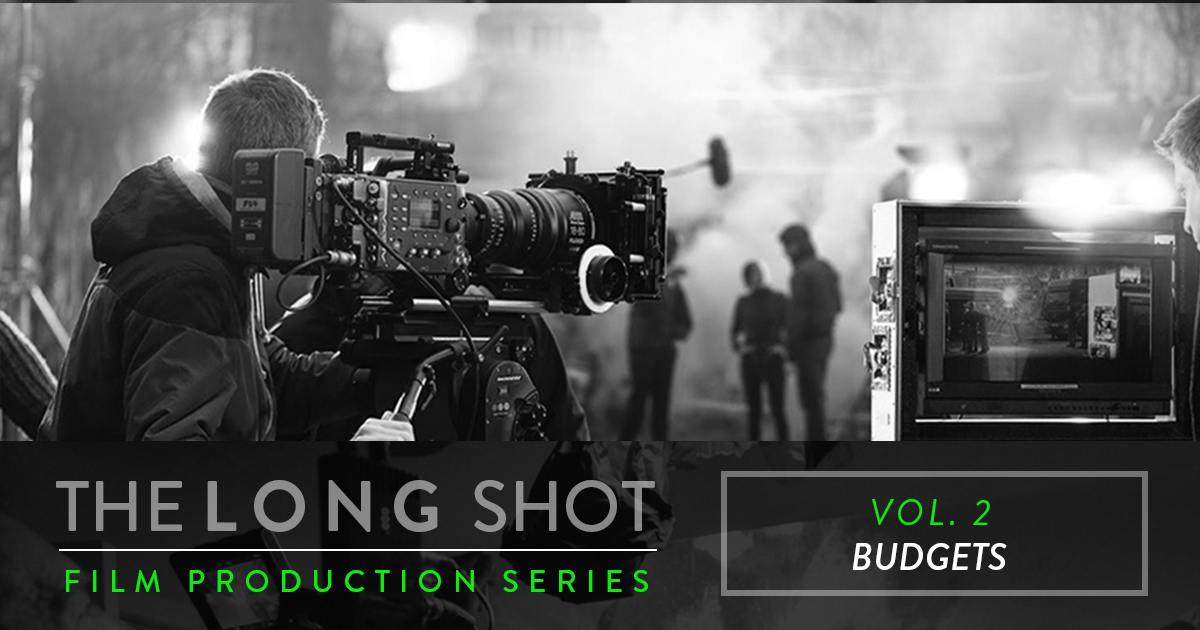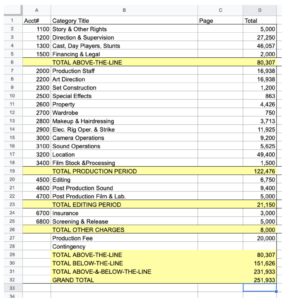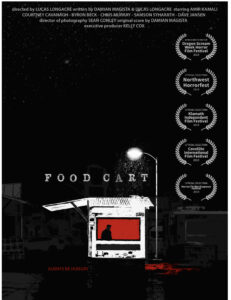
With the work stoppage from Covid-19, now is the time to put the extra effort into developing your next film project. As part of my continuing series on the importance of development and pre-production to maximize your indie-film, this article will focus on the glamorous and sexy world of…budgets!
I know budgets and accounting are two of the last things an independent filmmakers wants to think about, but bear with me while I give you a little of the ol’ Lukonian Logic and attempt to get you excited about line items and FICA.
Why Have A Budget?
What’s the point of a budget when I shot the film for $20: a pizza and a six pack of beer for my crew? I have had students push back with this common complaint when I force them to create a basic budget for their short film. The point of the budget is to encourage the young filmmaker to understand the value of their product, not just the costs. Understanding value is critical if she/he ever wants to license the film, sell the creative property, and maybe more importantly, respect their contributions as well as the investment from the cast & crew.
I typically create two budgets: real & actual.
Real Budgets:
For the real budget, I assign industry standard rates to every position. Even though I may be writing, producing, directing & acting, I write down flat fees for the Above-the-line positions (usually based on percentage of budget) and SAG minimum for the acting day rate. Each department gets a realistic budget: location Fees, props, extras, hair & makeup, etc. Even if the actors worked just for the experience and to build their reels, extras showed up for a free lunch, the locations were provided pro-bono by my old boss and the HMUA donated her time because she loved horror scripts, I record them as a line item priced at industry standards. All of these people invested their time and energy into your art. They are your first investors and you have to respect and value their contributions. You may also have financial investors and it is equally important to respect their cash contributions, but the labor and creative input from your team is what makes it on the screen. You literally could not have done it without them. So when a company wants to screen your short film at an event or maybe an online distributor wants to license it from you, the value of your film isn’t just a pizza and a six pack. You are disrespecting yourself and your team if you don’t negotiate at least for what your film is worth.
Actual Budget:
For the Actual budget, I record out-of-pocket costs. This way I can track what money was actually spent on the film. Included in this budget should be money for finishing the film and festivals, both costs that are frequently overlooked by young filmmakers. Festival fees can add up fast and it’s best to have a financial plan to make sure you can afford to enter. It’s also worth adding in travel costs and promotional materials for your screenings. On the off chance you actually sell your film or license it to a distributor, you need to know how much was actually invested.

If you look at the top sheet of Food Cart, the Grand Total is $251,993. The original script was 27 pages. Considering your average scripted television show costs $1 Million per episode to produce (according to Variety), I feel good about our final budget. And our actual budget was $10K out of pocket. You can view the final result here and let me know if you think it was money well spent.
There are many options for film budgeting software – Movie Magic Budgeting, Celtx, etc – and I can’t really recommend one over another. Here is a link to different options and reviews. I personally still use an old Excel spreadsheet that I created back in the early 2000’s for a feature horror film I optioned to a film fund that I have since converted to a google doc. I use it as the basic template whether I am producing a commercial, a documentary or an indie short. The one lesson I hope you take from this article: understanding the value of your film will empower you to be a better producer which will make you a better filmmaker.
Oh shoot, I told you I would get you excited about FICA and I forgot to mention it. FICA is a payroll tax that you will be very familiar with if you ever Line Produce a professional production and pay employees using a payroll service. There is actually nothing sexy or exciting about it, unless you find calculators or algorithms sexy. If so, then I apologize for my kink shame.
Article was originally published at lucaslongacre.com




